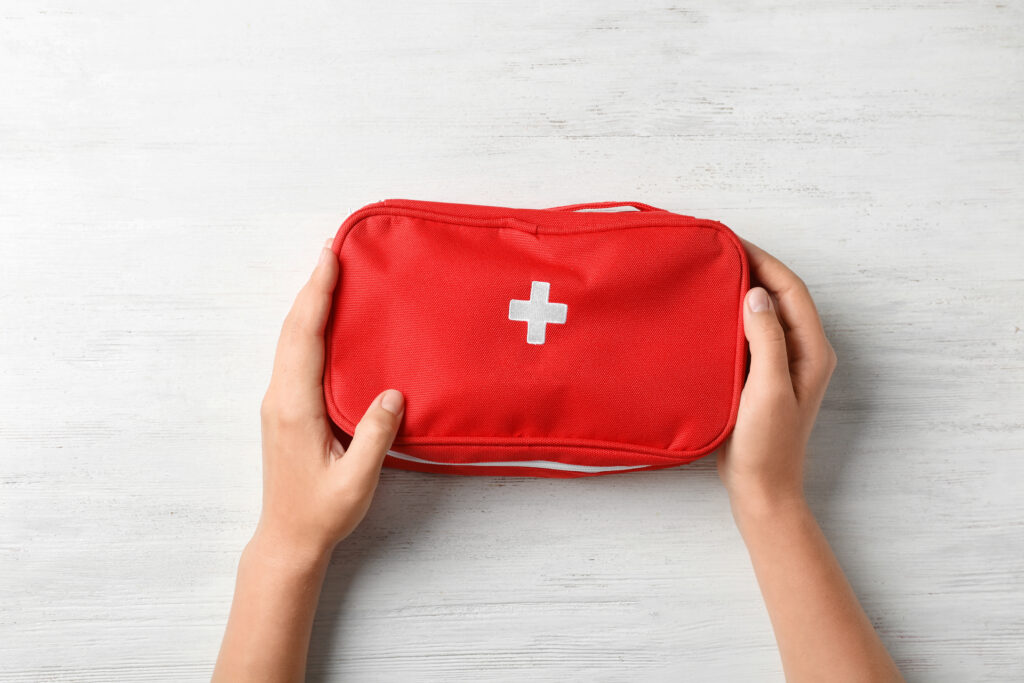I recently travelled internationally and, I have to say, it was not easy traveling with my factor. My bag was searched over three times and I was almost denied entry to the plane. I made sure to travel with a travel letter and my factor was in its original prescription packaging. How can I ensure smoother travels next time I go abroad?
Signed,
Traumatized Traveler
Dear Traveler,
Even though you encountered some hurdles, it does sound like you took the right steps to travel internationally with your medication. Additional screening at the airport is sometimes just the reality for people with bleeding disorders who travel with needles and medication.
While bag searches and additional security measures are not always avoidable, you can take action to prepare yourself for international travel. Here are some specific suggestions for traveling with injectable medication as someone with a bleeding disorder:
1. Check Travel Requirements: Before you travel, research the specific requirements and regulations of the country you’re visiting. Some countries have strict rules regarding medication and medical supplies. If needed, you can check with the country’s embassy or consulate for accurate and up-to-date information. You can identify hemophilia treatment centers around the world using the Global Treatment Centre Directory maintained by the World Federation of Hemophilia, and can potentially reach out to treaters in the country you plan to visit. Additionally, stay up-to-date with the US Department of State’s travel advisory list to stay informed on which countries are, and are not, deemed safe to visit.
2. Doctor’s Note and Prescription: Obtain a detailed letter from your doctor outlining your medical condition, information about your medication, the necessity of the medication, and the prescribed dosage. Make sure the letter specifies that you need to use and travel with needles and related supplies as well. If travelling to a non-English speaking country, it may be worthwhile to have an additional copy of your letter translated into the country’s local language. This can help you communicate more effectively with healthcare professionals and authorities if needed.
3. Customs and Security: Notify security personnel at airports and customs about your injectable medication and needles. Declare these items during security checks and provide any necessary documentation. Be prepared for extra screening and allow yourself extra time at security checkpoints.
4. Pack Medication Wisely: Keep your medication in its original packaging and transport it in your carry-on bag (not checked luggage!) to ensure you always have access to it. Use a cooler bag if your medication needs to be kept at a specific temperature. Pack needles and syringes in their original packaging as well and carry extra supplies in case of unexpected delays.
5. Carry a Medical ID: Wear a medical ID bracelet or carry a card that outlines your medical condition, medication, and emergency contact information. This can allow you to easily verify your condition and provide supporting material when explaining your condition to others.
6. Make Accommodations: Reach out to your airline ahead of time or speak with an agent at the airport to discuss any specific requirements or accommodations you might need. Some airlines may be able to assist with storage or transportation of medication. Please refer to the US Department of Transportation’s Airline Passengers with Disabilities Bill of Rights for more information on what accommodations and rights are available to you as someone with a bleeding disorder.
Remember that every individual’s situation is unique, so tailor these suggestions to your specific needs. It’s also a good idea to consult with your healthcare provider for personalized advice before embarking on your journey. While traveling with injectable medication won’t always be hassle-free, following these steps should provide you with a foundation for safe and successful travel.
Have a question? Email us. Your name will be changed in the response.
HFA frequently receives questions from the bleeding disorders community related to advocacy issues. The questions often impact the entire community. In an effort to reach the largest audience possible with our responses to these widely applicable questions, HFA developed “Dear Addy.” Questions submitted to this column are edited in order to protect privacy and should be considered educational only, not individual guidance.




